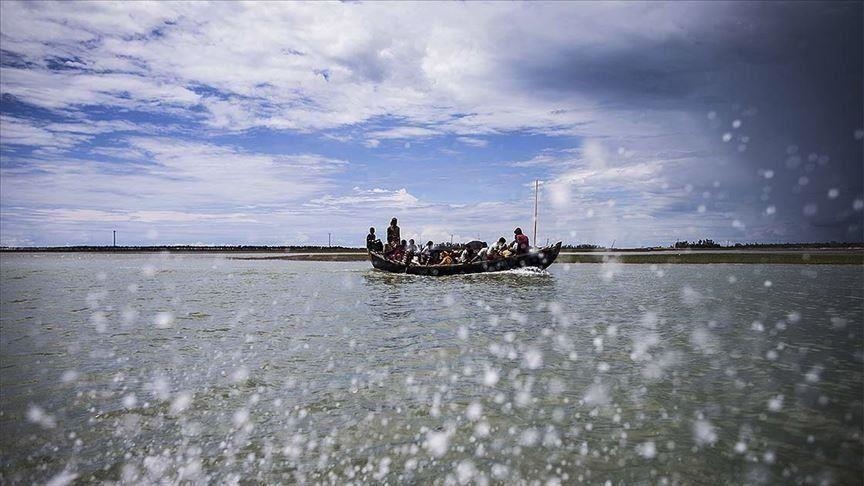Climate change refugees in Bangladesh vulnerable to human trafficking: UN
Human trafficking increased after millions of people displaced by devastating cyclones and typhoons, says Global Report on Human Trafficking 2022

DHAKA, Bangladesh
People displaced by the growing climate disasters in Bangladesh's coastal region are vulnerable to human trafficking, a latest UN report said.
The Global Report on Trafficking in Persons 2022 was launched in Dhaka, with officials from the United Nations Office on Drugs and Crime (UNODC), the International Organization for Migration (IOM), and the Bangladesh government in attendance.
Human trafficking has increased in Bangladesh after millions of people were displaced by devastating cyclones and typhoons, providing traffickers an opportunity to organize large recruitment campaigns, the report said.
Human traffickers are most active in the world's largest mangrove forest, the Sundarbans, and coastal areas of the southern Khulna district, according to the report, with 730 cases of human trafficking reported in 2020.
Globally, the number of convictions for trafficking offenses fell by 27% in 2020 compared to the previous year, but in Bangladesh, it fell by 56%.
The pandemic has increased vulnerabilities to human trafficking, undermining efforts to rescue victims and bring criminals to justice.
During the pandemic, fewer cases of trafficking for sexual exploitation were detected because public spaces were closed, and related restrictions may have pushed this type of trafficking into more concealed and less safe locations, making it more difficult to identify victims.
Based on trafficking cases detected between 2017 and 2021, the report covers 141 countries and provides an overview of patterns and flows of human trafficking at the global, regional, and national levels.
“While human traffickers are becoming more tech-savvy and are able to use technology successfully to their advantage, technology can also become an enhancing tool for the criminal justice system to detect, investigate and prosecute traffickers,” said Marco Teixeira, the regional representative at UNODC Regional Office for South Asia.
UN Resident Coordinator in Bangladesh Gwyn Lewis said “We must redouble our efforts to seriously and effectively address poverty and systemic inequalities with sustainable, inclusive responses. Those we leave behind are those we surrender to traffickers.”
Md. Aminul Islam Khan, senior secretary of Bangladesh's Ministry of Home Affairs, said on the occasion that his government is doing everything possible to combat illegal human trafficking, including strengthening border security and legal drives by security forces.
“The emerging effects of COVID-19 and climate change on human trafficking trends and patterns are alarming,” he said, adding that “I urge our national and international partners to prioritize strengthening capacities to identify trafficking in persons and focus on creating a victim-friendly criminal justice system.”
Anadolu Agency website contains only a portion of the news stories offered to subscribers in the AA News Broadcasting System (HAS), and in summarized form. Please contact us for subscription options.




